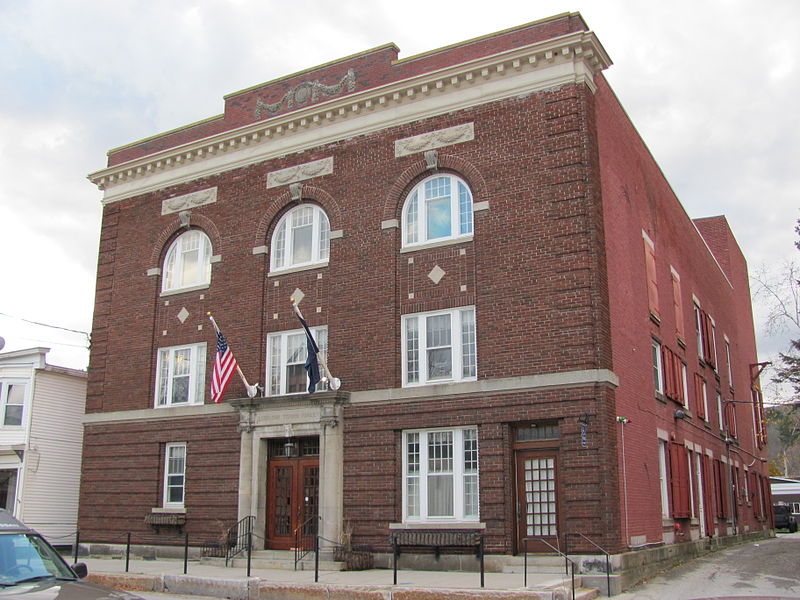LUDLOW, Vt. – Ludlow, like most towns across Vermont, held its annual Town Meeting on Monday, March 4, at 7 p.m.
Prior to the commencement of voting, Ludlow Rotary Club President Tom Ray and Immediate Past President Jim Rumrill unveiled a lectern dedicated to the memory of Martin Nitka, Ludlow’s longtime town moderator and Rotary Club member, who passed last year. Nitka’s wife Alice was also in attendance, and thanked the club for honoring her husband’s memory.

Article 1, election of Ludlow town officials, was conducted by Australian ballot the following day, and resulted in the election of Scott Baitz and Noah Schmidt in the contested election to a one-year term on the Ludlow Selectboard. No other positions were contested.
Also on the ballot were the Ludlow Mount Holly School District budget in the amount of $9,134,520; and a bond vote for repairs to Ludlow Elementary and the construction of new buildings at Mount Holly Elementary, which would cost $9,268,045. Voters voted against both proposals, making Ludlow one of many towns across the state where school budgets were defeated, largely as a result of concern over the forecasted double-digit rise in property taxes.
Article 5, the general fund budget in the amount of $4,684,819, generated some discussion from the voters present. The budget represents an increase of $275,704 over last year’s budget.
Ludlow resident Lou Krefski noted a proposed increase in the amount of money allotted for the Ludlow Fire Chief of “several hundred percent,” from $13,800 to $95,000. Town manager Brendan McNamara explained that this was due to the proposed addition of a full-time fire chief at the fire department, and that this was one of the largest single increases over the previous year’s budget items.
Ludlow resident Rhinard Parry questioned the $97,000 allotted for the former Black River High School building, asking whether the town intended to make a decision on keeping or selling the building. McNamara explained that the building was currently being leased to the Expeditionary School at Black River (ESBR), and that there would be an upcoming, town-wide discussion on what to do with the building in the near future.
ESBR board member Patrick Pullinen spoke to the school’s future plans, noting that the school’s ultimate goals include permanently leasing or purchasing the building. While this was included in the school’s initial 5-year plan, several bureaucratic holdups at the state level have delayed their timeline. “We [ESBR] would like to continue as tenants,” Pullinen concluded.
Article 6, a capital fund totaling $225,500 for equipment and facilities maintenance, also saw some discussion, particularly relating to the $125,000 allotted for a “dam spillway fund.” This money would be used for repairs and upkeep to the Jewell Brook Dam sites, several of which have caused concern recently due to the condition of their spillways. McNamara told the voters that it would likely not be necessary to raise these funds as tax revenue, as he was “99% certain” that the town had secured funding for this project via other avenues. Article 6 passed when put to a vote.
The remainder of the articles on the ballot were passed with little controversy. These included Article 7, funding for the MOOver; and Article 8, property tax exemption for the Fletcher Farm Foundation for five years.
Rep. Logan Nicoll, Ludlow’s representative in Monpelier, was also on hand to speak to voters prior to acting on the final article. Nicoll told those present that, while his committee was not personally involved with action on education spending and ways to decrease property taxes, he would be watching all relevant bills closely and shared residents’ concerns about the rising cost of living in Vermont. He also noted that the House of Representatives had managed to secure an additional sum of over $1 million in flood relief funding for Ludlow specifically. Nicoll encouraged constituents with concerns to call or email him at 802-345-8430, or replogannicoll@gmail.com.
After moving through Article 9, a largely procedural article allowing for other business to be raised if voters felt compelled to speak to the board, the meeting was adjourned.